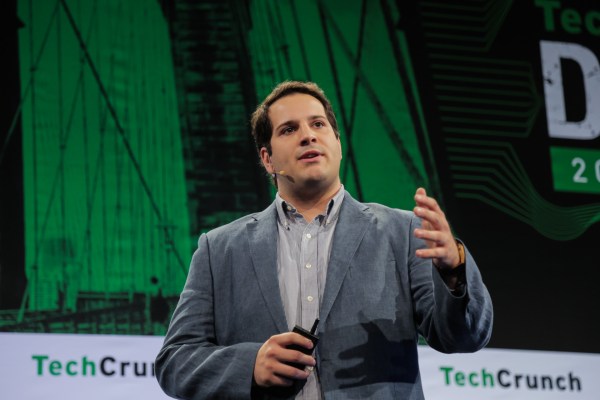PlaceAVote wants you.
The soon-to-launch startup brings together politically minded users to debate the bills currently before Congress. PlaceAVote, which is competing in Battlefield at Disrupt NY 2016, allows its users to discuss issues, write explanations of bills and even vote on them — and it aims to sell that data to Congressional leaders so they can see how voters in their district feel about particular issues.
“We have a social good element to our business,” explains CEO Luke Davis, who says his startup helps people engage with government. “But the most exciting part is that we make money in an industry that’s ripe for revolution.”
Davis and his co-founder Ben Colman want to challenge the polling industry, replacing landline polls with digital ones. PlaceAVote is solely focused on Congressional bills for now, but Davis and Colman hope to add bills from state and local legislatures soon.
Davis and Colman certainly aren’t the first founders to apply a technical solution to politics. Sean Parker has dabbled in the area with Brigade, an app that also aims to facilitate policy debates. Other apps have made similar efforts (Sidewire, for instance, hosts discussions of political headlines). But none have engaged Congress as much as they have civilians, and none have attracted the kind of user base necessary to challenge polling powerhouses like Gallup.
Of course, that’s exactly what PlaceAVote intends to do. Gallup relies on landlines to contact potential voters, which means it often neglects to poll young voters who exclusively use cell phones. PlaceAVote could bridge that gap — if it attracts enough young voters to its debate.
But Davis doesn’t want to woo only the millennial crowd. He says that, in beta, PlaceAVote has been popular with older users too. “The thing that I was apprehensive about was that I was going to have only 20-somethings on the site,” Davis says. “I don’t think that’s democracy; it’s not a representative model. Millennials are our biggest demographic, but our most vocal demographic is 55 and older. We stumbled into a product both ages like.”
On the government side, Davis says PlaceAVote has attracted interest from Rep. Seth Moulton (D – Mass.) and others. Getting government on board is where other political apps have faltered, Davis thinks. “The [tech] industry is so busy trying to reinvent the political wheel that it’s neglecting the users who have the most clout — members of Congress,” he says.
To get confirmed data that politicians will pay for, PlaceAVote says it will verify voters’ identities by asking them to upload a copy of their ID or by mailing them a postcard with a verification code. Votes are published anonymously via blockchain, but comments and discussion are posted under users’ real names. However, when I tested PlaceAVote, I was able to sign up and start voting with no verification at all — not even of my email address. (PlaceAVote says they are still finalizing verification methods and hope to someday be able to match each user to their voter registration.)
Before my test drive, I asked Davis if he was concerned about trolling or spam votes. What if an advocacy group swarmed PlaceAVote to sway a vote on a particularly divisive issue? Davis responded that he places trust in Reddit’s system of up-votes and down-votes — PlaceAVote uses a similar system for content moderation. “I’ve seen Reddit, for the last 10 years, function really well. They send everything that’s crap down to the bottom,” Davis says. But Reddit’s self-moderation hasn’t always worked out well, and it’s imaginable that trolls would take advantage of PlaceAVote’s open platform to sink a controversial bill — especially if members of Congress are paying for its data.
So far though, PlaceAVote users appear to be keeping it civil. Davis says he’s worked hard to make sure the platform is a nonpartisan space where voters from any party can feel comfortable.
When users log in to PlaceAVote, they’re greeted with a graphic interface of clickbait-y headlines that pose Congressional issues as questions. “Should GMO Labeling be Regulated by the FDA?” asked one. “Do We Need a New Strategy for Combatting Terrorists Online?” blared another.
A quick scan of Davis’ own votes reveals the man behind the platform — he’s in favor of marijuana legalization, which he calls a “no-brainer” in PlaceAVote comments, and opposed to broadening the government’s surveillance powers. He says he came up with the idea for PlaceAVote after becoming frustrated with the high tax rates he faced at his previous startup, Ventata (he sold that company last year). He studied math at Columbia University and has an obvious passion for data: he’s quick to rattle of the latest statistics on polling, elections and political donations.
“We have a system where most people don’t get a say; they think their vote doesn’t count. Why don’t we build an app that gives people what they’re hoping for, which is a say in politics?” Davis asks. “I want to build a tool where I can say I did everything possible to make it easy.”
[gallery ids="1320695,1320693,1320677,1320676,1320675,1320674"]
